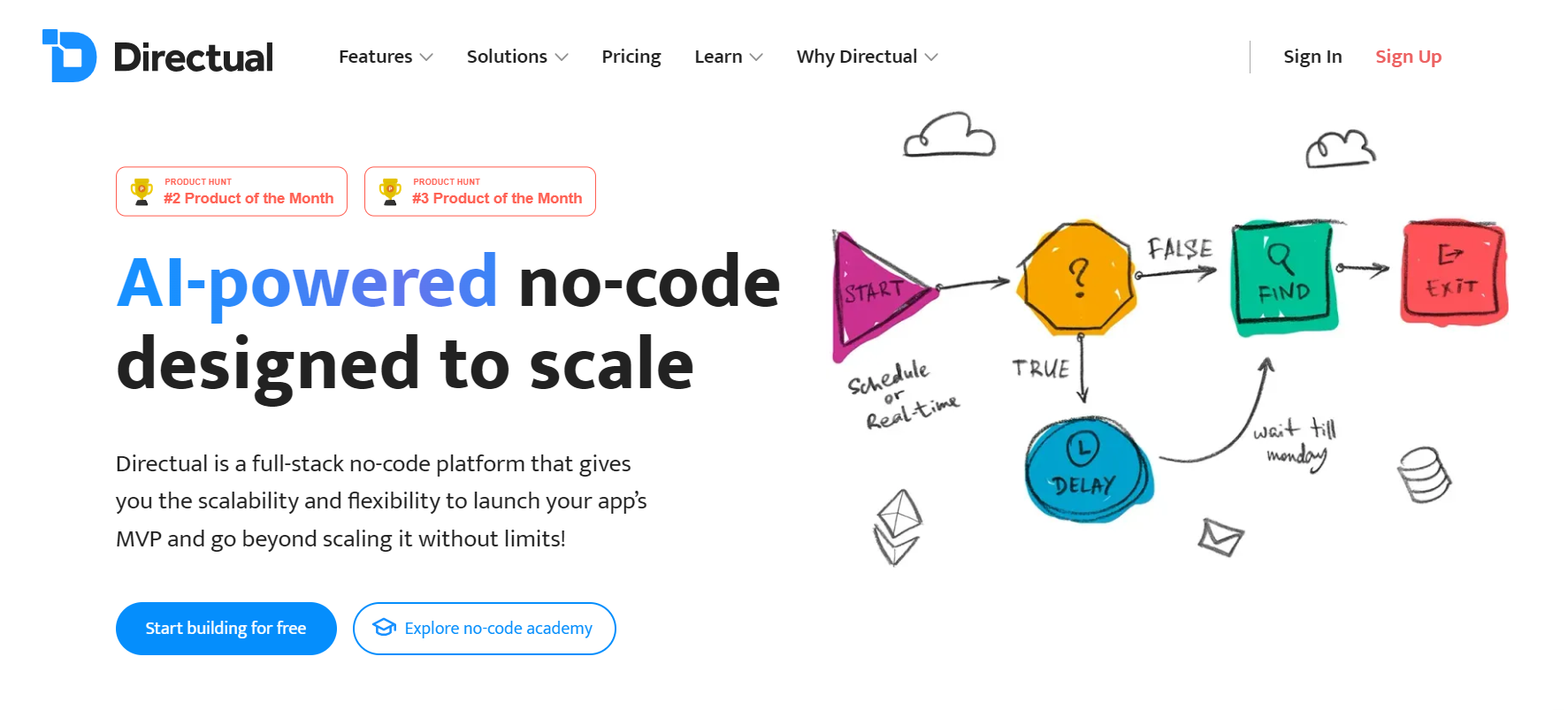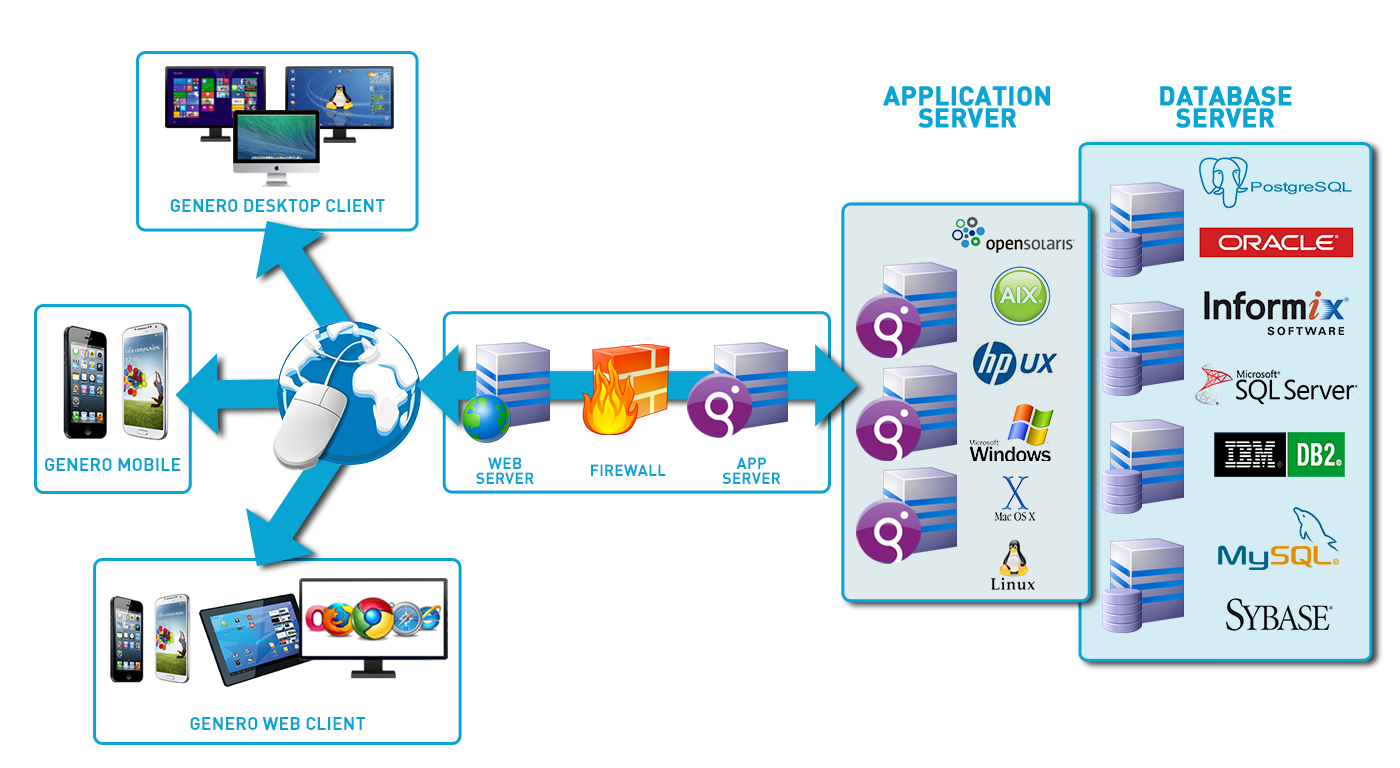No-Code Operating Systems for Open Platform Database Development: Conserve Time and Resources
No-Code Operating Systems for Open Platform Database Development: Conserve Time and Resources
Blog Article
Checking Out the Benefits of Scalable Databases That Call For No Coding Abilities for Reliable Data Management Solutions
The appearance of scalable databases that remove the need for coding abilities offers a transformative possibility for organizations seeking efficient information administration remedies. By making it possible for non-technical customers to harness the power of data through instinctive interfaces, these systems enhance accessibility and foster cooperation throughout diverse groups. Their cost-effectiveness and versatility to advancing business needs can substantially streamline operational procedures. As we consider the ramifications of such developments, it becomes vital to analyze how they can reshape the landscape of data administration and drive lasting growth in a competitive environment.
Improved Ease Of Access for Individuals
Enhanced accessibility for individuals is a vital facet of scalable data sources, making sure that data administration systems are instinctive and straightforward. In a period where data-driven decisions are paramount, ease of access permits a bigger series of users, consisting of those without considerable technological know-how, to engage with database systems successfully. This democratization of information accessibility assists in improved collaboration across divisions, empowering workers to remove understandings and make informed decisions.
Easy to use interfaces, such as drag-and-drop functions and visual data representation, streamline complicated information communications. These enhancements decrease the learning contour connected with traditional data source monitoring, allowing users to concentrate on leveraging information as opposed to coming to grips with technical complexities. Additionally, scalable data sources frequently integrate real-time analytics and personalized control panels, supplying individuals with instant insights tailored to their specific demands.

Cost-Effectiveness and Resource Cost Savings
Reliable data management not only rests on availability yet also on cost-effectiveness and source cost savings. Scalable databases developed for users without coding skills dramatically minimize monetary problems usually associated with traditional database monitoring systems. By getting rid of the need for specialized programming knowledge, organizations can assign their sources more successfully, focusing funds on core business tasks instead than substantial training or employing knowledgeable personnel.
Furthermore, these data sources often utilize cloud-based remedies, which even more decrease expenses connected to hardware and maintenance. Organizations can scale their data source options according to their needs, preventing the expenditures incurred from over-provisioning resources. This versatility indicates businesses can adapt to altering demands without incurring unnecessary costs, causing significant long-lasting savings.
Furthermore, straightforward user interfaces enhance data entry and monitoring processes, reducing the time spent on administrative tasks. This efficiency translates right into labor price financial savings, permitting teams to focus on tactical initiatives instead of routine maintenance. On the whole, taking on scalable data sources that call for no coding skills fosters a more cost-effective strategy to data monitoring, allowing organizations to optimize their sources while preserving high degrees of functional effectiveness.
Improved Partnership Across Teams

Furthermore, scalable databases help with seamless interaction among group participants. With easy to use user interfaces that need no coding abilities, employees can quickly produce, change, and share records or dashboards customized to their specific demands. This democratization of data empowers non-technical users to contribute understandings, enhancing the collaborative environment.
In addition, these data sources support simultaneous accessibility, enabling multiple individuals to service the exact same dataset at the same time. This attribute boosts efficiency, as groups can engage in joint information evaluation without the danger of version control concerns. The ability to leave comments or notes straight within the database better advertises discussion and clears up data interpretations.
Streamlined Data Management Processes
In today's data-driven atmosphere, companies acknowledge the requirement hop over to these guys of structured information administration processes to take full advantage of performance and precision. By leveraging scalable databases that call for no coding skills, companies can simplify their information handling and minimize the complexities commonly related to traditional data source systems. This access empowers non-technical individuals to involve directly with data, facilitating quicker decision-making and lowering reliance on specialized IT employees.
Streamlined data administration procedures enhance operations by automating routine tasks such as data entrance, validation, and reporting. Automated information assimilation ensures that details from various sources is aggregated perfectly, eliminating silos and promoting a merged view of critical company metrics (no-code). In addition, straightforward user interfaces permit employees to manipulate data easily, allowing them to generate understandings that drive strategic initiatives without the requirement for extensive training.
This performance not just increases operational procedures but likewise minimizes the potential for human mistake, guaranteeing that data stays trusted and precise. Ultimately, streamlined data management procedures with scalable databases bring about improved performance, permitting companies to focus on core tasks while ensuring that their information administration techniques are efficient and reliable.
Scalability for Growing Companies

For expanding ventures, the capacity to scale up or down is essential. A scalable data source can take care of an increase of information generated from new consumers, products, or services, ensuring that company operations stay continuous. Additionally, these data sources offer the ability to take care of peak loads successfully, which is necessary throughout periods of fast growth or seasonal spikes.
Additionally, several scalable database services are designed with user-friendly interfaces that need no coding skills, encouraging non-technical staff to take care of information efficiently (no-code). This democratization of information monitoring allows organizations to assign resources purposefully and decrease reliance on specialized IT workers
Eventually, adopting a scalable database not just boosts operational performance however also cultivates an environment where services can progress and innovate without the constraints of conventional database systems. This flexibility positions organizations for long-term success in today's affordable landscape.
Conclusion
In final thought, scalable databases that require no coding abilities provide considerable benefits for efficient data administration. By simplifying data management processes and using scalability for expanding organizations, such solutions enable organizations to adjust to altering needs properly.
Enhanced ease of access for customers is a Full Article critical aspect of scalable data sources, making certain that information management systems are straightforward and intuitive.User-friendly interfaces, such as drag-and-drop features and aesthetic data representation, simplify complex data communications. On the whole, taking on scalable data sources that need no coding abilities fosters an extra cost-efficient strategy to data monitoring, allowing organizations to optimize their sources while maintaining high levels of operational effectiveness.
By leveraging scalable databases that call for no coding skills, companies can streamline their data handling and lower the intricacies commonly associated with standard database systems - no-code.Structured information administration processes improve operations by automating routine jobs such as information entrance, validation, and reporting
Report this page